In part 1, we looked at parental responsibility as the root cause of obesity.
But what about diets? Should children go on diets, and do they work? Everybody knows somebody that has lost weight on a diet (Atkins, Paleo, intermittent fasting, etc.,), but how many have managed to keep the weight off.
A study by Wadden et al. (Int J Obes 1989) showed how quickly people (adult male/female) gain weight after dieting (within 5 years, the weights of the study cohorts returned to starting weight after a 1-year drop from dieting).
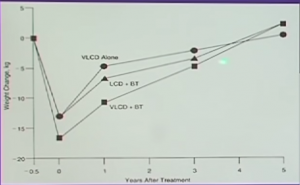
A study by Schwarz et al. (Arterioscler Thrombo Vasc Biol 1997) showed how few people (adult male/female) could maintain their post-diet weight.
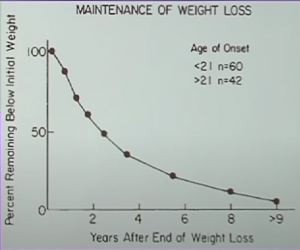
How about exercise?
A study by Shaw et al. (Cochrane Reviews 2008, Issue 4 CD003817) demonstrated, “When compared with no treatment, exercise resulted in small weight losses across studies. Exercise combined with diet resulted in a greater weight reduction than diet alone. Increasing exercise intensity increased the magnitude of weight loss. There were significant differences in other outcome measures such as serum lipids, blood pressure, and fasting plasma glucose. Exercise as a sole weight loss intervention resulted in significant reductions in diastolic blood pressure and fasting glucose. Higher intensity exercise resulted in a greater reduction in fasting serum glucose than lower intensity exercise”
Exercise does not cause weight loss; it creates muscle gain. Muscle has mitochondria, which burns energy, allowing insulin sensitivity, because you have a place to put your energy, instead of in your liver where it causes problems. Exercise is the single best thing you can do for yourself, but it will not solve your problem when you stand on that weight scale. Because what is it weighing? 4 things:
Bone, more is better;
Muscle, more is better;
Subcutaneous fat, more is better;
Visceral fat, more is worse, and visceral fat usually encompasses about 46% of your total body weight.
Doctors, friends, family, and the media are constantly asking people to “lose weight”. So, people exercise and do not realize how much muscle they have gained. They step on the scale. And see that they are at the same weight as they were before (not realizing they have put on muscle). They then become dispirited and stop exercising and that muscle turns to fat and they are in worse shape than before seeing the doctor.
Why is this happening?
A worrying development is how even young people are suffering from weight issues. The graph below shows how child obesity is getting worse, with the 2–5-year-old group going up the highest.
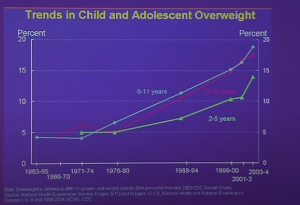
According to Kim et al., (Obesity 15:1107, 2006), there is even an epidemic of obesity among 6-month-old babies, gestational diabetes has increased in prevalence, birthweight has increased by 200 grams throughout the world (South Africa, Israel, Russia, U.S.A), and DEXA scans for body composition show greater fat deposition in newborns. What behaviors are these infants supposed to exhibit? How can you blame the parent in this case?
What is causing the problem in all of these situations?
Studies have told you the answer, but we live in a world that does its best to sugarcoat and obscure the truth behind distraction and deflection. The most likely culprit has been mentioned in the sentence above, did you notice?
It is sugar.
If you give a 5-year-old a biscuit, you do not need scientists to tell you what happens. Once they eat the scrumptious snack, every parent will have noticed that the child is generally climbing up the walls. The sugar high.
Sugar high is created by leptin withdrawal. Leptin is a hormone secreted from fat cells that helps to regulate body weight. The name leptin is derived from the Greek word ‘leptos’, ironically meaning ‘thin’. It is sometimes referred to as the ‘Fat Controller’, although it is at the center of the fat problem.
You can see in the diagram below the fat cells (adipocytes) get filled. The leptin goes up to the brain, informing the brain it has energy to give. The brain communicates this excess of energy with the sympathetic nervous system (SNS – also known as the ‘fight or flight’ part of the nervous system), which innervates your fat cells and muscles. The SNS then starts burning off the excess energy (hence why we fidget when we have sugar) and also releases the extra fat that turns into storage to be used at a later date.
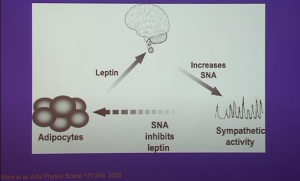
But what happens when you give a 5-year-old child who is obese a cookie? They are hunting the pantry looking for more cookies. Sugar highs do not exist in obese children, because they cannot see their leptin. Leptin regulates appetite by signaling to the brain that you have had enough to eat. Something is blocking that leptin signal.

A study at the Jackson Laboratory in 1949 compared a mouse unable to produce leptin versus a normal mouse. The one without leptin production became obese, and also his activity was reduced to a bare minimum, like a couch potato. This is because leptin tells the hypothalamus that you have the energy to burn. If the hypothalamus (the small area of the brain plays a crucial role in many important functions, including releasing hormones. maintaining daily physiological cycles, etc.,) sees the leptin signal, then it turns anorexigenic, telling the animal they are not hungry, so time to burn energy, it tells the SNS to fidget and it tells the vagus (the longest nerve of the autonomic nervous system), I am not hungry, stop releasing insulin.
But if the hypothalamus does not see the leptin signal, it turns orexigenic, telling the animal it is still hungry, and to store energy, SNS goes down (lack of energy to do anything, sedentary), and the vagus goes up (increased appetite), generating a very corrupt and harmful loop within your body.
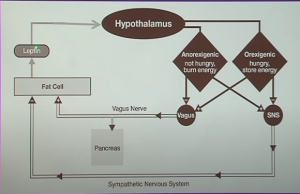
Fourteen patients from Pakistan and Turkey who were born without leptin-producing cells were studied in 1999. Their parents were closely related (consanguineous marriages), and though they were born at a normal weight, by age 6 months, they were all clinically obese.
In the study, at age 8, they were given leptin (via hormone replacement therapy), and suddenly they started losing weight.
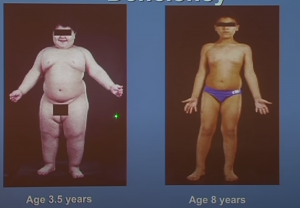
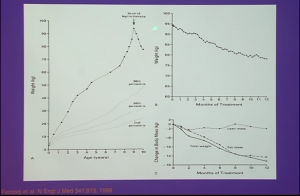
But the majority of humans are not leptin-deficient, we are leptin-resistant. What is blocking leptin from working in the rest of us? It is insulin. Insulin blocks leptin signaling by acting on the same neuron in the brain as leptin does.
In the average human being, insulin should only block leptin twice during pregnancy and puberty. However now, insulin blocks leptin all of the time, 24/7. Where does insulin come from? Sugar. Fructose and high fructose corn syrup inhibit insulin:
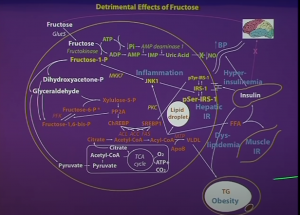
The proof has been around there for a long time:
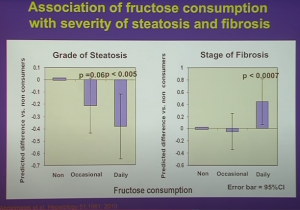
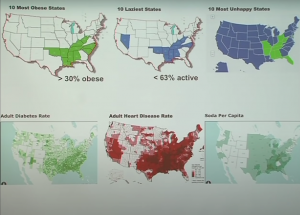
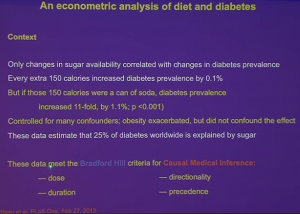
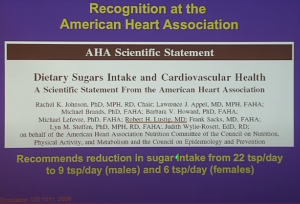
But companies are still making sugar-rich food. Of around 600,000 items in the world’s diet, 80% have added sugar (fructose, high fructose corn syrup). This is not for our purposes as humans, it is due to the industries, because they know if they add it, you buy it. And the government watches on.
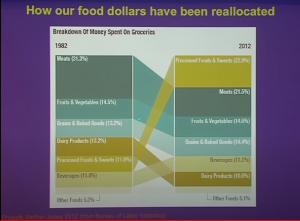

So, what are you going to do about it?

MDForLives is a global healthcare intelligence platform where real-world perspectives are transformed into validated insights. We bring together diverse healthcare experiences to discover, share, and shape the future of healthcare through data-backed understanding.






